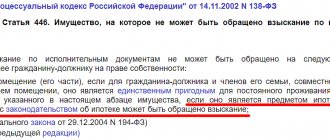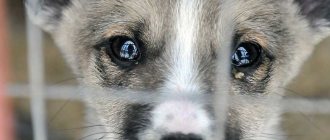The following two tabs change content below.
- Author
- Author's articles
Anastasia Klimenkova (Lawyer)
7 years of experience.
Author: Anastasia Klimenkova (Lawyer) (All articles by the author)
- What to do if a tree falls on your car: step-by-step instructions - 09.27.2021
- What will the pension be if there is no minimum work experience in 2021 - 09/02/2021
- What is the length of service required to retire in 2021? — 08/23/2021
State protection extends not only to people, but also to animals (wild and domestic). Federal Law No. 52 stipulates that Russian citizens and foreigners must treat natural objects humanely. Let's consider what types of liability are established at the legislative level for killing an animal.
Types of administrative punishment for cruel behavior towards wildlife
Federal legislation does not provide for administrative articles on cruelty to animals. But at the regional level there are such norms. Here are some examples:
- In Moscow, for mockery of objects of the animal world, their illegal transportation, organization of unauthorized shows that are accompanied by injury or death of animals, a fine of two and a half thousand is imposed on citizens and twenty thousand on legal entities.
- In St. Petersburg, responsibility is established for transporting pets in inappropriate conditions, depriving them of food, and conducting unauthorized mutilating or painful experiments. Citizens can be fined five thousand, organizations - one hundred thousand rubles.
- In Nizhny Novgorod, for unauthorized pulling out of claws or teeth, as well as docking of the tail and ears, carried out without compliance with sanitary rules and regulations, citizens are fined five thousand rubles, legal entities - forty thousand.
- In the Primorsky Territory, large fines are imposed on people involved in catching wild or stray animals for breeding or elimination.
- In the Krasnodar Territory, responsibility is imposed not only for cruel behavior towards animals, but also for refusal of their mandatory microchipping. Individuals can be fined two thousand, organizations - ten thousand rubles.
If, at the regional level, liability for unlawful handling of wildlife objects is not provided for, criminal norms apply.
Types of criminal penalties for cruelty to animals
Criminal liability is established by Article 245 of the Criminal Code of the Russian Federation. It stipulates that cruel behavior towards animals is the behavior of people that entails injury or death for selfish, hooligan reasons or for the purpose of causing pain or suffering.
Criminal liability is not differentiated by the degree of harm. The same punishment is imposed for various types of mutilation and murder.
The object of encroachment in this case is any type of animal - domestic, wild.
Cruelty can be expressed in the following actions:
- beating;
- sale for pitting or fighting;
- use for participation in competitions;
- conducting illegal experiments;
- use for sacrifices in rituals;
- burning;
- unauthorized amputation of limbs;
- inhumane forms of hunting.
Cruelty can be expressed in the following types of inaction:
- denial of water and food;
- intentionally leaving a pet in a situation that is life-threatening.
People involved in organizing fights involving animals are also held accountable.
Punishment may be imposed on a person who has reached the age of sixteen and is found to be fully sane. Citizens under sixteen years of age are registered as members of the commission on juvenile affairs.
Educational measures may be applied to the child (conversations, meetings, etc.), or his case may be sent to a judicial authority to be sent to a closed educational institution.
Criminal measures
Under the first part of Article 245 of the Code, the guilty person may be subject to the following types of punishment:
- a fine of up to eighty thousand rubles or income for the last six months;
- fifteen days of compulsory labor activity;
- corrective labor activity during the year;
- restriction of freedom of movement throughout the year;
- arrest for a period of six months;
- imprisonment for up to three years.
According to the second part of Article 245 of the Code, the guilty person may be held accountable in the following cases:
- The crime was committed in front of a minor.
- Particularly sadistic options for causing harm were used.
- The abuse was filmed and disseminated in the media or on the Internet.
- Violent behavior affected multiple sites.
- The crime was committed by several persons.
According to the second part of Article 245 of the Code, the guilty person may be subject to the following types of punishment:
- a fine of one hundred to three hundred thousand;
- corrective labor activity for two years;
- forced labor for five years;
- imprisonment for a period of three to five years.
Punishment options are determined by the court based on the characteristics of the crime.
The flayers were sentenced
The Third Cassation Court of General Jurisdiction upheld the conviction of a resident of Severodvinsk, Arkhangelsk Region: a man threw two decorative dogs out of the window during a family conflict. I wanted to annoy my wife, but in the end I was imprisoned for three years.
“While intoxicated, a previously convicted resident of Severodvinsk, after a conflict with his wife, threw two Papillon dogs through the balcony door of an apartment located on the 4th floor of an apartment building,” the Third Cassation Court said. “The reason was the dishonest, in the opinion of the convict, care of his wife for her pets. When falling from the 4th floor, both dogs died, receiving multiple injuries incompatible with life.”
For some time, Article 245 of the Criminal Code “Cruelty to Animals” was used quite rarely. But now practice on it is actively developing. Alas, flayers and sadists give many reasons for this.
For example, recently in the Khabarovsk Territory a 27-year-old dog hunter living in the village of Toki was convicted. He worked at a coal transshipment terminal, and dogs ran nearby. They didn’t bother him in any way, he just didn’t like dogs in principle. Therefore, the man decided to kill them by feeding them poisoned food. Two dogs died in agony. For this, the court sentenced the poisoner to one year of correctional labor.
Last year, about 50 people were convicted of animal cruelty in six months, and only two of them received actual sentences. But now there are more things to do and deadlines
However, practice shows that more and more often courts are sentencing flayers and sadists to actual terms.
“Given the public outcry around situations of cruelty to animals, the legislator is consistently increasing responsibility for these inhumane actions,” says Olga Miteva, a member of the Russian Lawyers’ Association. — In the process of dispensing justice in criminal cases of cruelty to animals, courts often find persons guilty and sentence them to real terms of imprisonment. This is determined both by the circumstances of the commission of a criminal offense and by the methods of committing the crime.”
In turn, the head of the hotline for animal protection, deputy of the Kursk City Assembly Dmitry Guliev, said that over the two years of operation, the hotline received more than 15 thousand calls.
“A significant portion of them deal with the topic of animal cruelty,” he says.
Messages are forwarded to law enforcement agencies. But if previously there were mostly refusals and only in isolated cases cases were initiated, now the situation is changing.
According to Dmitry Guliyev, it would be useful to issue methodological recommendations for the police on how to investigate cases involving cruelty to animals.
Exemption from punishment for killing objects of the animal world
A guilty person is subject to punishment only if he commits an act with intent, being fully aware of his actions and their consequences. The following categories of citizens are exempt from criminal liability:
- Minors under sixteen years of age.
- Mentally unhealthy, insane people.
- Defending from aggressive pets, a pack of stray dogs or wild animals.
- Car owners who hit a stray or wild animal crossing the road.
If a citizen kills an animal in self-defense, punishment is imposed on the owner of the pet who did not take care of the necessary upbringing, training, and equipment for a walk.
If the injured person suffers more than average harm, the owner will be held liable under Article 118 of the Code for causing grievous bodily harm.
When hitting animals, administrative norms do not apply. Such incidents fall under the category of road traffic accidents.
Punishment is imposed on the driver only if he has violated the rules of behavior on the road.
If the collision was committed against an animal that is not considered stray, the culprit will have to compensate the pet owner for material damage.
If a wild animal is killed, the damage will be assessed based on its rarity and value. The size is determined according to the norms of Order No. 948, issued by the Ministry of Natural Resources on December 8, 2011.
It records the monetary calculation of the amount of damage that was caused to hunting resources.
Killing an animal is a criminal offense, the punishment for which is provided for in the Criminal Code.
Administrative punishment is applied if the regional Code of Administrative Offenses establishes such norms. The degree of harm does not matter. The type of punishment is chosen depending on the presence or absence of qualifying characteristics.
If a person is released from punishment, then if a vehicle participates in a crime, the citizen will be held liable as its owner.
1 / 5 ( 1 voice )
“Took out the trash”: killed a dog just like that?
The dog owner has a slightly different version. In court, he said that when he arrived at KSU Kordon-1 on March 15, he saw bloody footprints at the intersection. 20 meters from the tracks he found Chuck’s body. Baranov immediately went to Repin to find out “why he shot his dog.” To this Repin replied that dogs and cats defecate on his territory and that “you had to keep an eye on your dog.” At the same time, in a conversation with Baranov, Repin never mentioned that the dog snapped at him or attacked him.
One of the witnesses from KGU Kordon-1, who heard the shots, told how he asked Repin: “Did you shoot at the ducks?” He replied that he was shooting at cats and dogs that had “messed up” his territory, but he didn’t even mention Chuck’s attack. Another witness recalls that when at a meeting of the owners of the Dubrava PKBO the chairman was asked why he killed the dog, Repin even stated that he had “removed the garbage.”
As for the dog, most residents of nearby recreation centers called him peace-loving and good-natured, said that “everyone loved him” and that “even children played with him.” However, among the witnesses there were those who considered the dog stray and were afraid of it. Chuck's previous owner either died or abandoned him. But in 2021, Vadim Baranov adopted the dog. He built an enclosure for her and let her go home in winter. Baranov also presented the investigation with a passport, which indicated that Chuck was vaccinated against rabies in 2021. And during the autopsy, no visible signs of this disease were found in the dog.
The court found Repin guilty, noting that even if the dog grinned at him, he managed to enter the house and could have called for help by phone rather than reaching for the gun. In addition, he continued to chase the dog, despite the fact that it no longer showed signs of aggression. The shooter's gun was confiscated.
“As a representative of the victim, I asked him to confiscate his gun, the weapon of the crime.” I asked that it be confiscated, although the article does not provide for confiscation. The judge agreed and confiscated the gun and ammunition. And I think this is the main thing - to live next to a person who has not repented,” says the victim’s lawyer Inna Rybak.
When investigator Nurgaleeva once again refused to initiate a criminal case, Russian State Duma deputy Alexander Gribov, who is one of the authors of the new edition of Article 245 of the Criminal Code of the Russian Federation, got involved. Photo duma-er.ru








